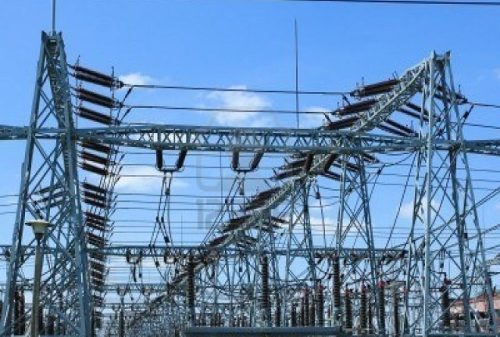Electricity consumers across the country may experience blackouts as the Federal Government ramps up efforts to stabilise the national grid through planned outages, according to the Nigerian Independent System Operator.
Currently, at least six states in the North-East are without power due to an ongoing outage coordinated by the Transmission Company of Nigeria (TCN) to facilitate crucial upgrades to transmission infrastructure.
In a video statement released on Wednesday, the Managing Director of the Nigerian Independent System Operator, Abdu Mohammed, explained that the blackout affecting Borno, Taraba, Adamawa, and Yobe is part of a larger nationwide maintenance initiative, which is expected to extend to other regions in the near future.
The explanation follows public outcry after the Transmission Company of Nigeria commenced construction of a turn-in-turn-out along the 330kV Jos-Bauchi-Gombe transmission line to connect the new Bauchi 330kV transmission substation to the grid.
Mohammed said, “The outage in the northeastern states is a planned one, for infrastructure improvements by the Transmission Company of Nigeria and a planned outage to improve services that would be provided for these states, especially from Borno, Taraba, Adamawa, and Yobe.
“That axis has been witnessing a little bit of poor supply over the period. However, the TCN has been working to improve supply; as such, there is a turn-in and turn-out project that they are going to implement, and that is why we have the outage from Tuesday to Saturday that would enable TCN to complete the project, and there would be improved supply within that axis.
“It has become very necessary to have this project executed at this particular time, to make sure that the power supply within that axis is drastically improved. It is an ongoing project that other areas would also benefit from.”
The operator, which oversees grid operations and coordinates the generation, transmission, and distribution of electricity to eligible customers, said the outages were necessary despite the discomfort, adding that they are part of a strategic effort to resolve years of chronic underperformance in the power sector.
The NISO chief further hinted that the nationwide maintenance project would continue throughout the year, warning that more regions should expect temporary blackouts in the coming months as similar upgrades are implemented across other regions.
“As soon as that project is implemented, another region will also face a similar exercise so that infrastructure improvements are attained as planned. The goal is to drastically improve the reliability and availability of electricity supply across Nigeria,” the NISO boss added.
He noted that the affected North-East corridor had suffered from epileptic supply for years but assured that the current intervention, centred on a turn-in-turn-out connection along the 330kV Jos–Bauchi–Gombe line to link the new Bauchi substation, would bring lasting relief to the region.
“From Tuesday to Saturday, there will be a temporary outage to allow TCN to complete the project. Afterwards, supply within that axis will improve significantly,” he explained.
Mohammed admitted that while the blackouts may seem burdensome, they are being executed in phases to avoid nationwide disruptions. He said a limited power supply would be maintained in affected areas through alternative transmission routes.
“The improvements expected from this exercise would enable increased supply to the Northeastern states and would enhance the availability of supply. This is what we have in place for now, and we believe that at the end of the day, it would be a win-win situation. The outage may be consequential, but a limited supply will be given through alternative lines.
“However, we plead with our customers, especially the distribution companies and numerous customers around that axis, to bear with us because this is an improvement project that is ongoing across the country. This is an ongoing project that we will continue to experience gradually and then improve the system reliability and availability,” he said.
Meanwhile, the TCN has said only residents of Yola and Jalingo, the capitals of Adamawa and Taraba states, have been plunged into total darkness following a five-day power outage triggered by ongoing grid repairs.
The blackout, which began on Tuesday, is a result of construction works on a turn-in-turn-out segment along the 330kV Jos–Bauchi–Gombe transmission line, designed to link the newly built Bauchi 330kV transmission substation to the national grid.
The development was confirmed in a statement issued on Wednesday by the General Manager, Public Affairs, TCN, Ndidi Mbah, who noted that the project is expected to be completed by Saturday, June 14, 2025.
“In the course of this work, Gombe and Biu transmission substations will continue to receive power through the Dadin-Kowa Hydro Power Plant and the Maiduguri substation, supported by the Maiduguri Emergency Power Plant,” the statement read.
“As a result, there will be a temporary reduction in bulk electricity supply to Jos and Yola Electricity Distribution Companies for onward distribution to their customers in Bauchi, Gombe, Ashaka, Savannah, Damaturu/Potiskum, and Biu. However, only Yola and Jalingo will experience full power outages during the five-day construction period.”
TCN further explained that a new transmission tower is being installed as part of efforts to strengthen the network’s resilience and flexibility.
“This will allow the Bauchi and Gombe substations to act as mutual backups in the event of maintenance or fault. Additionally, Jos will be able to supply Bauchi Substation directly through a 132kV transmission line whenever the primary 330kV connection via Gombe is unavailable.”
According to the company, this arrangement is aimed at improving emergency response efficiency and diversifying transmission routes to ensure more reliable electricity delivery in the future.
While appealing for patience from affected customers, TCN assured that normal electricity supply would be restored as soon as the project is completed.



